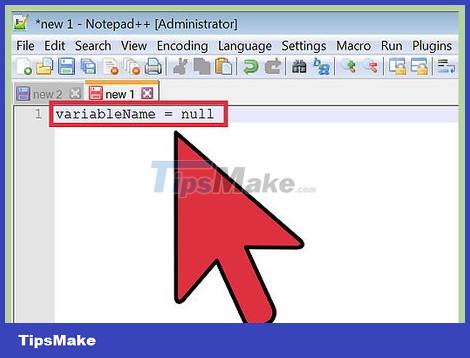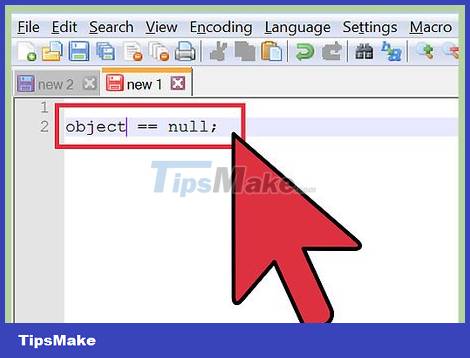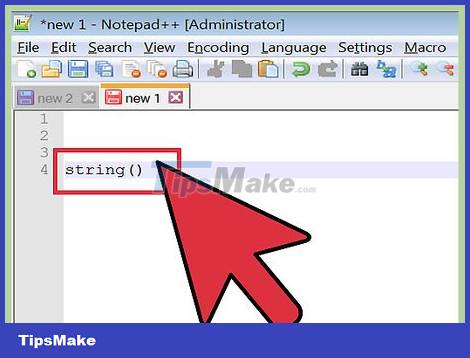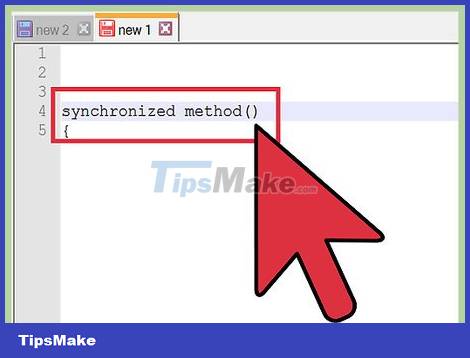How to Check for Null in Java
Checking for null in Java

Use the '=' sign to define a variable. An '=' sign is often used to declare and assign values to variables. You can use this to set a variable to null.
The values of '0' and null are not the same, so their uses are also different.
variableName = null;

Use two '==' signs to check the value of the variable. The two '==' signs are used to check whether two values on different sides are equal. If you assign a variable null with an '=' sign, then when you check whether the variable is null or not, you will get the value true.
variableName == null;
You can also use the '!=' operator to test if some value is NOT equal.

Use 'if' statement to condition null variable. The result of the expression will be a boolean value (true or false). You can use a boolean value as a condition for the statement to execute afterward.
For example, if the value is null, you enter 'object is null'. If the two '==' signs do not find that the variable is null, the operator will ignore the condition or find another path.
Object object = null ; if ( object == null ) { System.out.print( "object is null "); } Use the null check statement

Use null as unknown value. Null is very often used as a default setting in place of any assigned value.
With string()null will be a temporary value until that value is actually used.

Use null as a condition to end the process. Returning null can be used to create loop termination or pause the process. This is often applied to throw errors or exceptions when something goes wrong or when an unexpected condition occurs.

Use null to indicate uninitialized state. Similarly, null can be used as an indication that the process has not yet started or as a condition to mark the start of the process.
For example, execute something while the object is null, or do nothing until the object is NO longer null.
synchronized method() { while (method()==null); method().nowCanDoStuff(); }